Remembering 200 years of the P.C. Fire Department
September 21, 2023 at 3:09 a.m.
Angelo Sposta describes himself as a “firehouse kid”—one of many of his generation in the Port Chester community who spent their childhoods hanging out at one of the seven Port Chester Fire Department companies.
They were there because it was an extension of home. In Sposta’s case, he was at the Fire Patrol & Rescue Company, operating out of headquarters on lower Westchester Avenue, with his father, a firefighter. Vividly, and fondly, he remembers it as a day and age where “our fathers could just throw us in the truck with them,” he laughed.
“I was here every day, from when I was a tiny kid until I joined. And there’s a lot of guys that were like that, too. All of us are members of the department now,” said Sposta, who is the current fire chief. “It’s all about public service, giving back to your fellow citizens. My family’s always been geared toward that. Before this, they were all veterans, and we kind of took our service in another way and went into the fire department. It’s a calling, and us younger ones didn’t really have a choice because the groundwork was already laid for us to become firefighters.”
Another firehouse kid, just a few years older than him, was Eugene Miller, who also joined the force when he came of age. His tragic death in 1991, after he was run over by an engine during a service call, shot ripples of grief across the community—a pain firefighters still carry today.
Every generation that’s come and gone through the Port Chester Fire Department has one or two collective memories that burn in the back of their minds. For Sposta’s era, it was Miller’s death and their service during the Sept. 11 terrorist attacks. For his father’s, it was the infamous Gulliver’s fire, which took the lives of 24 people stuck in a nightclub in 1974.
“We deal with a lot of bad things in the firehouse, but we have a lot of great things, too. You really get a mixture of everything,” Sposta said. “You have really high highs, and really low lows, and you don’t know what the day is ever going to bring. But as a group, we battle it no matter what, whether it’s the worst call of our life, or the best event of our life. And that’s what makes it work.”
“It’s all about balance,” said Tommy Zack, a 50-year-plus firefighter with the Harry Howard Hook & Ladder company.
For the roughly 350 members of the Port Chester Fire Department, the weekend will go a long way in tipping the scales of that balance—adding another milestone that will define their experience of service with honor.
Older than the Village of Port Chester itself, the fire department is celebrating 200 years of service this year. Though the bicentennial was technically recognized in April, this weekend will bring events meant to get the entire community involved in the milestone.
“We all live with a bunch of ghosts that never go away,” Zack reflected. “Which is why it’s important we develop thick skin and enjoy the celebrations and praise that we can.”
Public festivities begin this weekend on Friday, Sept. 22, when the department hosts a car show on Abendroth Avenue starting at 6 p.m. and running until 11 p.m. Then, at 3 p.m. on Saturday, Sept. 23, there will be a grand parade featuring departments from around the area—all there to honor the storied history of Port Chester.
The events will go on rain or shine.
As the senior living past deputy chief, Vinny Lyons of the Harry Howard Hook & Ladder Company eagerly awaits to serve as grand marshal. “It’s a real honor,” he said, with an added chuckle: “I’m even getting my uniform pressed.”
He takes pride following in the footsteps of a lineage of heroes who have been positioned in similar roles and was even prouder to report that he’ll be marching the entire route. Harry Howard himself, a celebrated New York City firefighter, was the grand marshal of a Port Chester parade in the 1890s, he said, and he started the tradition of taking every step by foot.
“I’m honored really,” Lyons said, “that’s why I want to walk down the avenue.”
200 years of history
The fire department was established in 1823, initially as a single volunteer company, and has historically maintained a healthy, ambitious force. They elected their first fire chief, John. W. Lounsbury, when more companies got involved in 1854.
“We’ve been through highs and lows. We’re working really hard to attract younger members and getting new people in, and right now it’s working. I think we have the most active interior guys we’ve had in a long time,” Sposta said. “We’re doing good, which is partly because of our makeup here in Port Chester. We’re a blue collar community—communities that are more white collar, they have a hard time attracting members because it’s not their lifestyle. And we’re a very busy department, we have a lot of fires, a lot of calls. Anyone in the surrounding area knows if you want to be a firefighter and fight fires, Port Chester has more than anywhere else in the area. A lot of members what to join here.”
In the world of firefighting, Port Chester has always been a hotspot, said Michael DeVittorio, a former fire chief who now, by passion, acts as the “unofficial official historian” of the department. Even before organized firefighting was instituted, residents were forming bucket brigades to try and combat flames.
Members are working on putting together a book documenting the storied history of the Port Chester Fire Department, for which DeVittorio has spent years piecing together research.
The fire department was incorporated in April 1823 by the residents of Sawpit (Port Chester, before it became a village in 1868) through the formation of the first company, Clinton Engine Company, named for Governor DeWitt Clinton who signed the bill allowing them to establish in a hamlet. Later, in 1874, Clinton Engine Company would become the still existing Reliance Engine & Hose to avoid political baggage associated with the name.
“They had some money to purchase a used fire engine from New York City, it was actually condemned by the city as unusable, but they got it here and they got another 40 years out of it,” DeVittorio illuminated. At this time, “everything was hand engines, hand pulled, hand pumped,” as they operated out of essentially a shed in Liberty Square.
It wasn’t until the 1890s that horse drawn steam engines came into the mix, and even then, “the Village never owned any horses,” he said. “They rented them by call. It was up to local stable owners, and they’d get a premium if they were the first horse team there.”
The first motorized engine came in just before World War I in 1910, which led to the 1912 hiring of the first paid firefighter: Pat Casey. The Village continued to maintain a staff of no more than 15 career firefighters until they were controversially laid off in 2016.
Over the years, as technological and municipal developments took shape, the jurisdiction of the Port Chester Fire Department evolved appropriately. “The fire boundary originally went from Grace Church Street up to the railroad bridge on North Main Street and maybe 500 feet up the hill,” DeVittorio said, reminding that in the days of hand pulled engines, they were encumbered by physical limitations.
When mobility became flexible, the department started servicing the entire Town of Rye “out of what amounted to the goodness of their hearts,” he said. However, a 1920 political disagreement with wealthy estate owners that he said prevented Port Chester from becoming a city ultimately produced the contracting system still in place today. The Town of Rye used to pay for the fire department’s services, and now there’s an agreement in place with the Village of Rye Brook, which didn’t incorporate until 1982.
The Village of Port Chester has always been a microcosm representing the culture of the era, and the fire department’s history reflects that. Over the years, different companies popped up as the department battled inner tensions related to nationality, immigration and religious affiliations, DeVittorio described. And unsurprisingly, as several 50-year members also recall, those distinct separations by company continued until relatively recently, albeit also a matter of tradition.
“I was just the second Catholic to get into my company, and the third Italian,” Lyons reflected of his initial enlistment over 50 years ago. “They had just started lightening up a little bit.”
Many companies were established over the last 200 years, some “that didn’t stand the test of time,” DeVittorio said, whether it be because they folded or became affiliated with the Greenwich Fire Department instead. But seven remained strong, joining Reliance Engine & Hose in the community:
*Putnam Engine & Hose established in 1854
*Harry Howard Hook & Ladder established in 1858
*Mellor Engine & Hose established in 1882
*Fire Patrol & Rescue established in 1884
*Washington Engine & Hose established in 1903
*Brooksville Engine & Hose established in 1908
DeVittorio marveled at how 200 years sounds like a long time, but in reality, it’s only a few generations removed. When he first joined in the 1980s, the oldest members had enlisted around World War I. And when they joined, they knew firefighters alive for the Civil War.
It makes the quick advancement of technology even more remarkable.
“It’s come a long way since then, but it’s ultimately the same thing: you put water on the fire,” he laughed. “That hasn’t changed.”
“It was a whole different game back then,” Chief Sposta said. “They didn’t have air packs; they didn’t have any of the comforts we have now. They had pumpers and jackets and helmets and that was it. And they went in and took a beating. A lot of guys were injured back then.”
Firefighting has always been, and will continue to be, a dangerous game. And the Port Chester Fire Department has seen traumatic times—an experience members of all generations share.
There are big fires of note that have gone down in the Village’s history, from the St. Peter’s Church Fire of 1886, which burned in the area behind what’s now Kneaded Bread, to the Russell, Burdsall & Ward Nut and Bolt factory flames that burned for three days in 1973.
From the 1960s to the 1980s, “Port Chester was going through a really bad period economically, and things were just burning,” DeVittorio said. Those were the busy years, when most industry pulled out of town. “A lot of the fires were in abandoned places, some of them were due to rent control laws and the Village declaring urban blight. Landlords realized they can’t get anything for their buildings, so it’s like, ‘burn it down, I’ll get more money from insurance.’”
Lives have been lost by the danger of operations. DeVittorio, in his research, has been garnering a list of fallen firefighters. And the more he dives into the data, the more he realizes that his list is just a start. Thus far, the memorialized are:
*Charles William, May 1865
*John Rockwell, May 1865
*J. Fred Nies, March 1883
*William Chapin, December 1893
*William Berda, June 1923
*Joseph Hamilton, January 1940
*Isadore McGowan, June 1950
*Andrew McDonald, November 1953
*Walter Huhne, April 1963
*Eugene Miller, April 1991
“The line of duty deaths is something that carries with us,” Sposta said. “They’re ingrained in our history, and we carry them every day.”
But with hardship often comes a bright side—changes that advance the evolution of the industry.
200 years of progress
Different generations affiliated with the Port Chester Fire Department spoke of progressive strides they’ve seen come to fruition. And impacts have been made on both local and state levels.
Tommy Zack spoke of the evolution of equality that he witnessed and advocated for—pushing to give less tenured members a more prominent voice and heightened opportunity and bringing more transparency to membership elections.
The culture and resources affiliated with the department have changed immensely, Zack and Lyons discussed. And while they don’t think all the shifts are great, others have made the gig vastly healthier.
“Today, at least, they have critical incident stress debriefings with professionals when bad situations happen,” Zack said. “Whereas back then, you’d have to go home and just deal with it. And some of those things, you never forget.”
Situations that the Port Chester Fire Department has encountered have led to reform across the state, and because the agency has such strong volunteer numbers, it inherently has a force of influence.
After the fire at Gulliver’s Nightclub, Sposta explained as an example, new fire code regulations were put in place in part because of the tragedy.
“Gulliver’s didn’t only affect Port Chester, it affected the whole region because there were people who died that were from all over the area,” he said. “Now when you go into buildings and there’s exit signs and certain stairways in place, a lot of that originated from the tragedy.”
When Eugene Miller died, he continued, that also inspired changes in fire apparatuses going forward. Now, he said, the engines have lights to indicate if it’s safe to operate.
To an extent, there’s always been a progressive force behind the Port Chester Fire Department because its membership embodies a characteristic that most others across the U.S. are not known for: diversity.
“It’s always been an immigrant community, since day one, and this fire department has always embraced that. And we have a lot of members of all backgrounds,” Sposta said. While there have been historical tensions to reckon with, membership has still mimicked the demographics of the community at large. “Now, Port Chester has a large Hispanic population, and we have a large Hispanic membership. And it’s great; it keeps us going.”
“When you look at the history of volunteer fire service in general, it’s probably, after the use of the educational system, one of the greatest tools for assimilation in our history,” DeVittorio said. “The Germans would have been the first wave, then the Irish and down that line. And now it’s the Hispanics. It is the gateway to becoming part of the community, to getting to know people outside of your group, and to basically assimilate and become American.”
With that reality embedded in their fabric, DeVittorio said the current initiative they’re pushing for in collaboration with other Westchester fire departments is the availability of Spanish material. The language barrier adds an unneeded complication to the certification process, and it’s an important interest in Port Chester particularly to see it removed.
“They know that someone speaking for Port Chester carries votes,” he said. “They have a tendency to listen to what’s happening.”
200 years of family
Something special, Sposta said, about the Port Chester Fire Department is the number of 50-year recognition celebrations hosted across the agency—there’s 10-15 members with a half century of service under their belt at every company, he said.
Volunteer firefighters have often, in reflection, referred to the department as a brotherhood—a home away from home, and family beyond blood. And as Sposta noted, it’s now a sisterhood as well, with over 20 active women involved among the companies.
Zack, who was a career firefighter, was motivated by his friendships to join the fire department. But his inspiration to stay, even after the paid members were laid off, came from the newfound family he discovered.
“It was just a fun profession,” he said. “I think, the second family, the camaraderie. Everyone here is like family. And it truly is an extended family. You think of everything that happens in your family; it happens here. The likes and dislikes, and that’s what makes it fun.”
“But you know, argue all you want, when the fire whistle blows, everyone gets together,” added Lyons. “Everything else gets put aside, and that’s a safety thing, too. When you go out, you want to come home with everyone that you went with.”
However, the long-term commitment, in large part, also roots from blood. Historically, Port Chester is a community where families settle, and generations stay. Thus, service becomes a tradition. Because of that nature, some families can be linked to department origins.
Bill Nethercott has one of those stories. A 50-year member and former chief himself, “one of my relatives was the contractor who built the firehouse itself,” he said of the Washington Engine & Hose location on upper Westchester Avenue. It’s the company that Nethercotts have been involved with since the beginning.
Like Sposta but of a different generation, Nethercott was a firehouse kid.
“When I was growing up, we were always brought there,” he said. He tried joining the company as soon as he turned 18 but was waitlisted for two years due to demand—a common happenstance at the time across the entity, as serving was a sought-after experience.
In a way, celebrating the fire department’s 200-year anniversary feels like a recognition of his own family; the histories are entwined.
“It’s great. Not many things make it to 200 years before they go away,” he said. “I’m very proud of the fact that we’ve made it this far. I don’t think I’ll be around for the 225th year, but I’m happy to be involved in this.”
He, along with several other older members, expressed concern over the sustainability of the family-bonding commitment. It’s a different world. Westchester is more expensive, the housing market has exploded, and children are more likely to be relocated.
But some families are seeing the tradition through. Sposta’s children, he’s ensured, are also firehouse kids.
“When you join here, you gain a family that’s unbelievable,” he said.
Three years ago, he recalled, his son William got sick, having a brain tumor removed as just a 2-year-old child. And the fire department was there to support him—emotionally, and financially, like a family.
“We argue, we bicker, we have the normal stuff. But at the end of the day, anyone in the firehouse, if you’re a firefighter, they’ll be at your house helping you in the drop of a hat.”
“I’m having the honor of being fire chief during our 200th anniversary, and I had the honor earlier this year of being chief to give my father his 50-year badge,” he said. “I’ve seen a lot of bad stuff over the last 25 years of my own service, but those two events made it worth it. I’m just proud and honored to be where I am for such a huge milestone.”

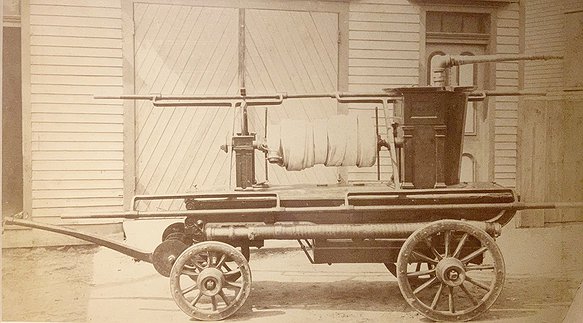
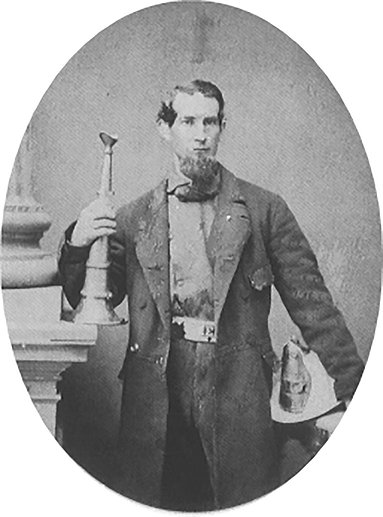
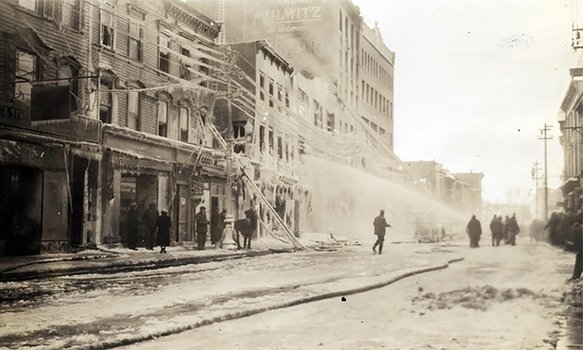
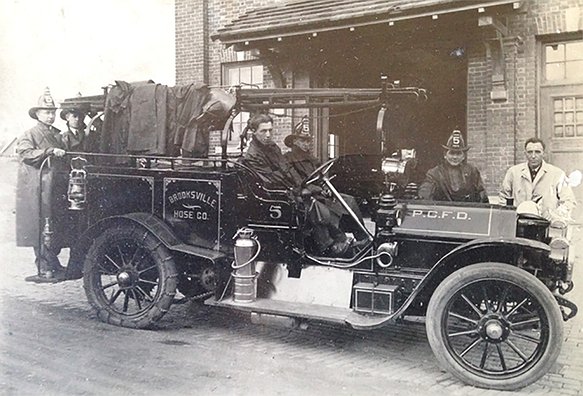
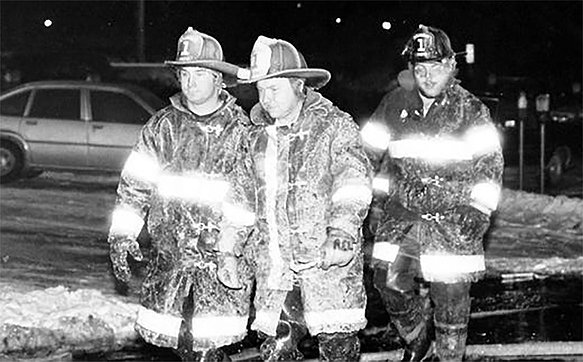



Comments:
You must login to comment.